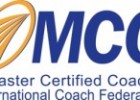
What is executive coaching?
The term executive coach is used commonly now. In fact, coaching itself has become mainstream for corporate, non profit organisations and businesses in general. But what does that label actually mean- “executive coaching.”
Generally this type is coaching is aimed at senior levels of management up to and including CEO and in some cases board level. The coach is not coaching an organisation or business but rather, the person or people responsible for running it. Coaching is always about human beings – how they behave, how they think, their impact on others and outcomes. Executive coaching is about results and change. While there may be discussions about strategy around various areas for change, the coaching focuses on how that leader or manager is thinking about that strategy, the change, their people, and their own view of the world.
Executive coaching might often include working on getting feedback on an executive’s performance which is scary enough in itself. But then it is also about looking at the feedback, exploring strengths, listening to that feedback, and having the courage to decide to change to achieve a different outcome.
Coaching can be particularly effective in times of change for an executive. That includes promotions, stretch assignments, and other new challenges. An executive might be confident in their abilities to take on new tasks, they may feel that an independent sounding board would be beneficial in helping achieve a new level of performance, especially if close confidants are now reporting to you. More so, you may recognise that succeeding in a new role requires skills that you have not needed to rely on in the past; a coach may help identify and maybe sharpen those skills.
But coaching is not just for tackling new assignments. It can also play an invigorating role. Coaches can help executives “develop new ways to attack old problems, When efforts to change yourself, your team, or your company have failed—you are frustrated or burned out—a coach can be the outside sounding board to help you get to the root cause and make fundamental changes.
One increasingly common use of coaching for senior executives focuses on the challenges of managing younger workers, and on helping executives better understand and lead a new generation of employees whose work ethics and values are different. Coaching can help executives learn to understand the important of their own values, their people’s values and how all need to fit together.
The coach’s main role is to ask the questions that get the executive really thinking about their thinking and to hold the space, hold them accountable. I know from personal experience that at senior levels or as a business owner there is no one holding you to account to act on the things you KNOW need to be….. whether they be great, new creative ideas or having challenging conversations with people. Executives generally need a coach who matches their courage to have those challenging conversations themselves. There also needs to be a match, good chemistry.
Contact Gai or schedule a free session to experience Master Coaching.




